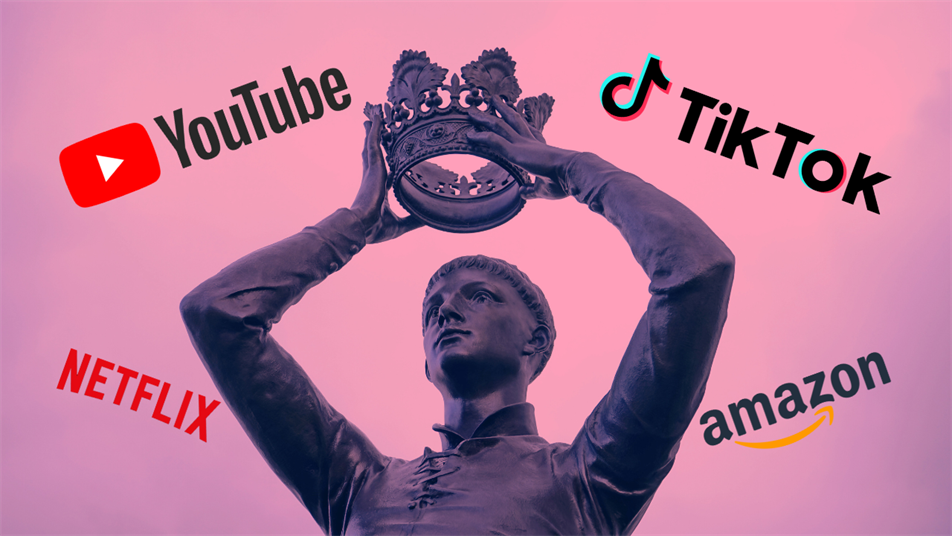The culture industry is a concept developed by Theodor Adorno and Max Horkheimer, members of the Frankfurt School, in their 1944 work Dialectic of Enlightenment. They argue that under capitalism, culture becomes an industrial product, mass-produced for profit rather than genuine artistic or intellectual value. Forms of culture such as music, film, television, and advertising are standardized and commercialized to maintain social control and encourage passive consumption. This process turns audiences into consumers who experience culture not as a means of critical engagement but as a commodity designed for pleasure and distraction.
Adorno and Horkheimer viewed this system as a threat to individuality and rational thought. Instead of promoting creativity or reflection, the culture industry shapes public consciousness, creating conformity and false needs. Audiences are made to believe they have freedom of choice, but their preferences are largely determined by capitalist production systems. In contemporary society, these ideas remain relevant. As Couldry and Hepp (2017) note, today’s media landscape is deeply embedded in mediated communication, where social interactions and cultural practices are increasingly structured by media institutions. The spread of digital platforms such as Netflix, YouTube, and TikTok demonstrates how entertainment continues to dominate people’s attention and influence their lifestyles.
In modern daily life, entertainment functions as a vital form of relaxation and emotional release. After long working hours, people often prefer easy and enjoyable content that helps them escape from pressure. Music, films, and short videos serve as accessible ways to unwind. This aligns with Scannell’s (2007) discussion of broadcasting as an ordinary and everyday experience that connects people emotionally through shared enjoyment. However, as Adorno and Horkheimer warned, such mass-mediated pleasure can also lead to mental laziness and loss of critical thinking. When people are constantly surrounded by entertainment, they may prioritize consumption over reflection, valuing amusement above intellectual development.
The economic benefits of the culture industry are undeniable. It stimulates global markets, creates employment, and promotes product consumption through strategic media practices. For example, live-stream anchors and social media influencers often use cheerful tones and emotional storytelling to attract viewers and stimulate impulse buying. This approach reflects how entertainment and commerce have merged, making cultural content a key marketing tool. However, not all products are suitable for such emotional or playful marketing strategies. Items like cars or smartphones rely more on demonstrations of functionality and trustworthiness, as seen in Apple’s advertising, which emphasises design and performance while maintaining an air of simplicity and sophistication.
In conclusion, despite its benefits, society must remain cautious of overconsumption. The dominance of entertainment can diminish creativity and lead to social conformity. To balance this, audiences should engage more critically with cultural products and recognize how media industries shape desires and behaviors. Ultimately, while the culture industry provides enjoyment and economic growth, it should not replace thoughtful engagement with the world. True cultural development requires maintaining space for critical awareness, originality, and meaningful communication.
References
Adorno, T. and Horkheimer, M. (1944) Dialectic of Enlightenment. New York: Herder and Herder.
Couldry, N. and Hepp, A. (2017) The Mediated Construction of Reality. Cambridge: Polity.
Scannell, P. (2007) Media and Communication. London: SAGE Publications.





This was a very engaging read and it was incredibly interesting to hear about the effect capitalism has had on our culture. I also appreciate how you were able to convey its effect on contemporary mediums, showing how the theory has remained relevant via the growth of digital platforms.
I really like how you explained the culture industry here, it feels clear and grounded but still connects to everyday life. The way you linked Adorno and Horkheimer’s ideas to Netflix, YouTube, and TikTok makes the theory feel really current, especially since entertainment is so tied to how we relax now. I also liked the point about how marketing and culture have merged, the example about influencers using emotion to sell products was super accurate. It’s crazy how even our downtime is part of a profit system without us realising it. Even the bit about Apple’s advertising shows that “sophisticated” marketing still fits the same pattern of control. This blog post captures how entertainment isn’t just harmless fun but it shapes the way we think and behave, which is exactly what Adorno and Horkheimer warned about.
I like how you explained the culture industry — it’s clear and connects theory to everyday life. Linking Adorno and Horkheimer’s ideas to Netflix, YouTube, and TikTok makes them feel current. The point about influencers and Apple ads shows how entertainment and marketing merge, turning even our leisure into part of a profit system — exactly what Adorno and Horkheimer warned about.
Thank you, Linda. This piece is clear, forceful and offers contemporary insights. I particularly appreciate your point that culture is no longer merely an expression of art or thought, but has become an industrial product produced, standardized and consumed under the guise of capital, potentially eroding critical thinking and individual creativity. This aligns with your observation in the article that leisure and entertainment have become channels for evading reflection. Additionally, I think your analysis could be further enriched by exploring how the very important algorithmic mechanisms of today either assist or reconfigure the logic of the cultural industry.